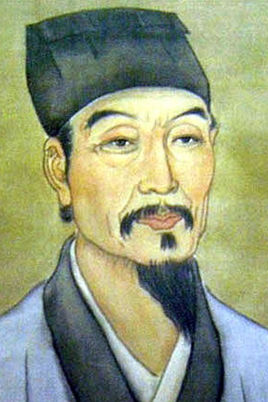Wu Cheng'en (1500~1582) was a novelist and poet of the Ming Dynasty, generally acknowledged as the author of the Chinese folk novel Xiyouji (Journey to the West).
吴承恩(1500~1582),淮安山阳(今江苏境内)人,明代小说家、诗人。吴承恩被认为是中国民问小说《西游记》的作者。
Wu received a traditional Confucian education and became known for his cleverness in the composition of poetry and prose in the classical style.
接受的是传统儒家教育,因善于做诗和写文言文而出名。
Throughout his life he displayed a marked interest in bizarre stories, such as the set of oral and written folktales that formed the basis of Xiyouji.
吴承恩一生都对志怪小说(比如作为《西游记》成书基础的口笔头民问故事)非常感兴趣。

In its 100 chapters Xiyouji details the adventures of a cunningly resourceful monkey who accompanies the Buddhist priest Xuanzang on a journey to India.
在100个章节里,《西游记》详细地叙述了一个足智多谋的机灵猴子陪伴唐僧玄奘前去印度取经的冒险故事。
Like all novels of its time, Xiyouji was written in the vernacular, as opposed to the officially accepted classical style, and therefore had to be published anonymously to protect the author's reputation.
与当时的其它小说一样,《西游记》是用白话(与官方接受的文言文对应)写成的,所以,为了保护作者的名声,这部小说不得不化名发表。
As a result, the identity of the novelist was long unknown outside of Wu's native district.
这样一来,吴承恩家乡以外的地区很长时间都不知道《西游记》的作者是谁。
Only two volumes of Wu's other writings have survived; these were discovered in the imperial palaces and were reprinted in 1930.
吴承恩的作品只留下来两册,这两册书在皇宫被发现,并于1930年出版。












